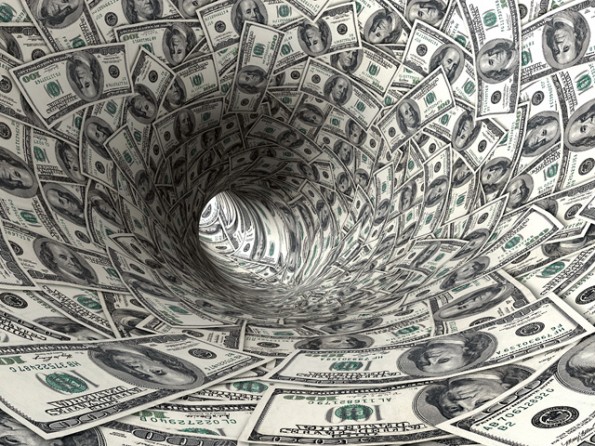 The offers sounded fantastic.
The offers sounded fantastic.
I could buy an expensive laptop and have a whole year to pay for it at Best Buy—if I put the purchase on their store credit card $500 loan same day. Best of all, there would be no interest charges if I paid it off within 12 months.
Kohl’s offered me a closet’s worth of clothing with a 35 percent discount if I charged it on their store credit card.
At Target, when I wheeled my merchandise to the counter, the checker said “I can give you $10 off if you put that on our ‘REDcard.’” Wow! I quickly signed up for the Target credit card.
Then my dog got hit by a car. Bainfield Pet Hospital inside the Taylorsville PetSmart said the bill would be nearly $500. I could either pay cash immediately or sign up for a card called CareCredit—otherwise they wouldn’t treat him. So I ended up with a fourth card.
Suddenly, I was in hock for $100 a month in ‘minimum’ payments. But I didn’t realize how much real trouble I was in until all four card issuers sent notices that I was being charged late payment fees for missing my first payment. The fees added up to $130. But I had never received a bill from ANY of them!
Thankfully, the card issuers dropped the fees when I called to protest. Most people get stuck with charges because they never contact the card issuer. But that was only part of the trap. There’s more. For example, sending the required minimum payment may not pay off the purchase. Even if you owe just a few dollars when the ‘promotional’ time period ends, you’ll be charged full back interest from the purchase date. With Best Buy, that interest rate is a hefty 27.99 percent. Compare that to a regular Visa or Mastercard, where the annual percentage rate (APR) ranges between 9.50 and 18.00 percent, and late payment fees average half the amount of late fees charged by store cards.
Another concern with some cards: if additional items are charged to the credit card, the minimum payment is then divided between them. That almost guarantees that none of the items will be paid off by the end of the interest-free time period if the card holder isn’t paying careful attention.
Wendy Whatcott is a Salt Lake consumer who uses, but refuses to be trapped by store credit cards. She takes advantage of the discount offered by Kohl’s when a purchase is charged to its card. “But then I pay it off at the register before I leave the store. I recommend doing that, because then you’ll pay off the card before it becomes a problem,” she says.
Another non-victim is Laurie Stringham of Kearns, who knows a lot about store cards. She told Utah Stories, “These stores don’t really issue their own cards; they are issued through large banks or major credit card companies as a third party. With many of them, if you’re late with a payment, deferred interest stops and you’re back-charged the full interest rate from that moment on.”
Laurie and her husband had opened 11 store credit cards over the years, without even realizing it. “We had to get a credit report to see what cards were still open, because we thought they had been canceled years before,” she explains.
Laurie warns cardholders to formally cancel accounts. “The problem with having a credit card still open is that hackers can access it. Increasing numbers of companies are having credit card information stolen. That doesn’t include dishonest employees who see a card which hasn’t been used in years and begin using it. Because often, all you need is the number. You want to close old accounts; they’re a security risk.”
There are many ways out of the ‘Sucker Trap.’ To learn six ways to protect yourself and get charges and fees reversed, go to www.utahstories.com/2015/01/corporate-credit-card-sucker-trap.






